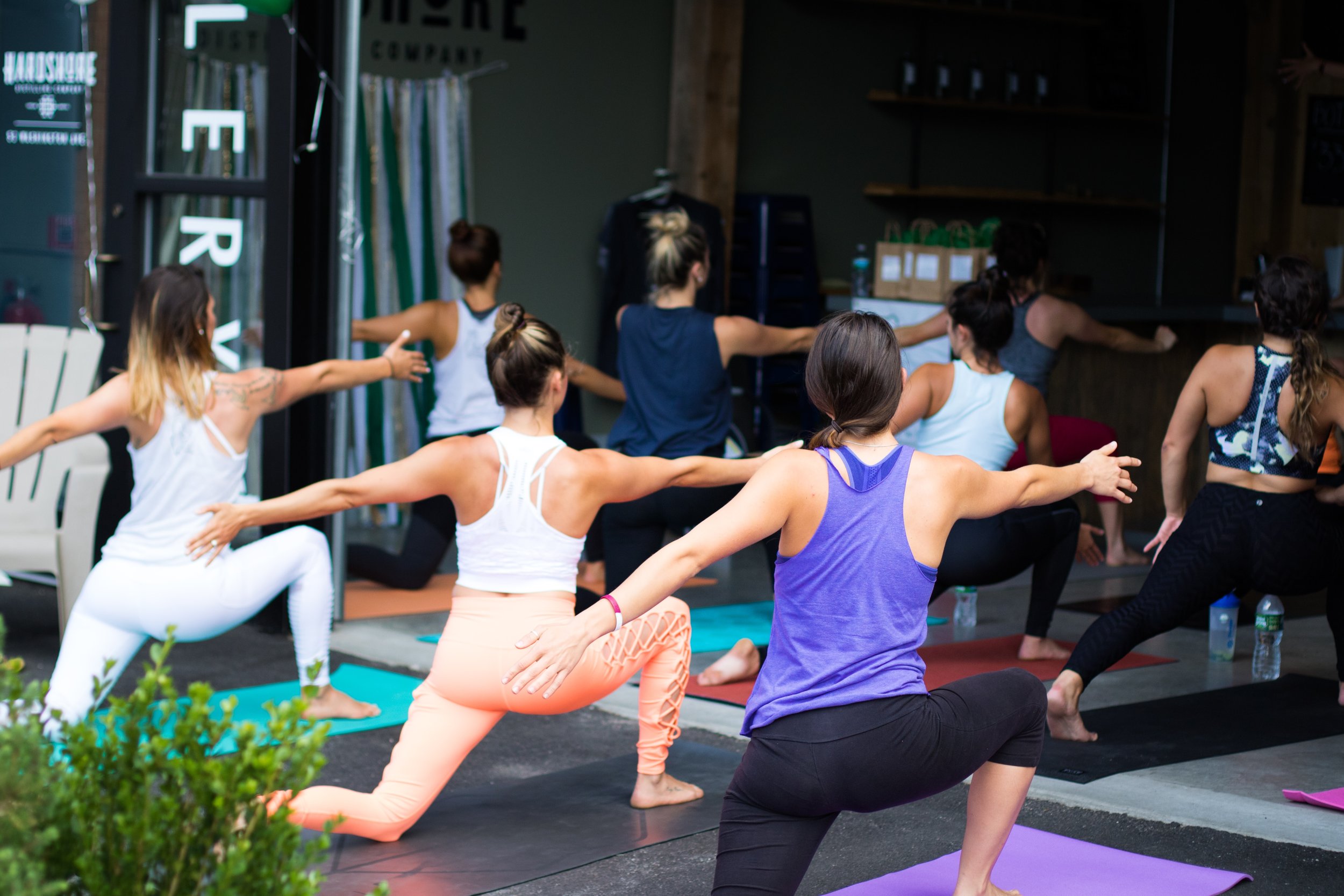We all want to be healthy, but we aren’t all exactly great at doing the right things to keep us well, right? Well, one thing we can absolutely do to change that is to mimic those people we know who are always fit and healthy. You know, the ones who never seem to be at the doctor’s office unless it’s for their annual physical which they always pass with flying colors? How do they do it? Here are a few things those healthiest of people always do, and you probably should too.
1. They’re Research Ninjas
First off, the healthiest people are practically PhDs in Googling. They don’t just swallow the latest diet trends hook, line, and sinker. Nope, they’re research aficionados, diving deep into credible studies before trying out that new turmeric latte or CBD oil. They know what the most common emergency room errors are so they can be on the look out for them, and they know what their symptoms may mean and who they need to talk to about them. It’s like they have a mental filter that sifts out the wellness wheat from the chaff, but actually, you can be like them too by simply taking more of an interest and reading more reputable medical literature.
2. Laughter is Their Secret Weapon
You know how laughter is said to be the best medicine? Well, the healthiest folks take this prescription seriously. They laugh often and heartily, knowing it decreases stress hormones and boosts those feel-good endorphins. It’s cheaper than therapy and a lot more fun than a treadmill slog.
3. Sleep is Sacred
To the über-healthy, sleep isn’t wasted time; it’s when the magic of recovery and rejuvenation happens. So, of course, they are well-known to guard their sleep hours like a dragon hoards gold, sticking to routines that ensure they’re in dreamland soon after their heads hit the pillow. No midnight Netflix binges for this crowd. Their bedroom is a tech-free sanctuary, optimized for slumber.
4. They’re Hydration Heroes
While we’re chugging coffee like it's a race, the healthiest among us are sipping on water all day long, and they are happy to do so. They know that staying hydrated is the key to everything from glowing skin to proper brain function. Some even take it up a notch with lemon water or herbal teas, turning hydration into a mini wellness ritual.
5. Movement is Non-Negotiable
Notice how the healthiest people can’t seem to sit still for too long? That’s because they’ve turned movement into a non-negotiable part of their day. Whether it’s a morning jog, a lunchtime walk, or a bike ride after work, they find ways to make exercise enjoyable and consistent. For them, the gym isn’t a chore; it’s their playground.
6. Mindfulness is a Must
It’s not all about the body; mental health gets top billing, too. The healthiest people practice mindfulness in some form, be it meditation, yoga, or simply deep-breathing exercises. This helps them maintain a stellar stress management game and keeps their mental health in check.
7. They’re Social Butterflies (with Boundaries)
Social connections are vital to them, but they’re choosy about their company. Surrounding themselves with the kinds of people who are always supportive, positive and happy, and setting boundaries that protect them from negativity is what they’re all about, and you know what? That is why they have so much energy and such good mental health!
8. They Embrace the Great Outdoors
Those really healthy people? They know that Mother Nature is better for us than any wellness coach on Instagram. Knowing this, they will always make time for outdoor activities, understanding that a dose of fresh air and sunshine is not just good for the vitamin D levels but also for the soul. Whether it’s hiking, gardening, or just a leisurely stroll in the park, they regularly disconnect from the digital world to reconnect with nature.
9. Their Plates Look Like Rainbows
The healthiest people you know are the people who always have at least three veggies on their plate at every meal. They have made it their mission to eat the rainbow and this means that they are getting all of the vitamins, minerals, and antioxidants that they need to keep their bodies running at peak.
10. They Cultivate a Growth Mindset
Ever noticed how the healthiest folks seem perpetually upbeat about overcoming challenges? That's the power of a growth mindset. They view setbacks as opportunities for growth rather than insurmountable obstacles. This positive outlook is essential for both mental and physical health, fostering resilience, and a never-give-up attitude that’s infectious.
11. Intuitive Eating is Their Jam
The healthiest people we know are not the ones who try out every crash diet going, they are the ones who eat when they are hungry, eat what their body is telling them to eat, and stop when they are full. In other words, they are intuitive eaters.
12. They’re Lifelong Learners
The quest for knowledge never ends for the healthiest people. They’re always up for learning something new, whether it’s a cooking technique, a workout trend, or a meditation practice. This not only enriches their lives, but also helps to keep their brains young and healthy too.
13. Routine is Their Secret
While spontaneity has its charms, the healthiest individuals thrive on routine. Having a structured day ensures they make time for all the essentials: proper nutrition, exercise, sleep, and relaxation. But don’t mistake their love for routine as boring; they know when to shake things up to keep life interesting.
14. They Say Yes to Less
In a world that often equates success with more — more money, more possessions, more commitments — the healthiest people dare to embrace minimalism. They find joy in simplicity, which reduces stress and frees up time and energy to focus on what truly matters. Whether it’s decluttering their homes, simplifying their schedules, or practicing mindful spending, saying yes to less is their mantra for a more fulfilling life.
15. Giving Back is Part of Their DNA
The healthiest people know that true wellness extends beyond self-care to caring for others. Volunteering, community involvement, and acts of kindness are integral parts of their lives. They understand that helping others not only makes the world a better place but also enriches their own lives, proving that the path to personal health is paved with generosity and compassion.
16. Digital Detoxing: Unplugging to Recharge
In today's hyper-connected world, the healthiest people know the importance of occasionally unplugging to recharge their mental batteries. Digital detoxing—whether it's setting aside specific times of day to be screen-free, enjoying tech-free weekends, or engaging in regular media fasts—helps reduce stress, improve sleep, and foster stronger, more meaningful connections with others. By consciously stepping away from the digital chatter, they cultivate a sense of presence and mindfulness, enhancing their overall well-being. It’s not about shunning technology entirely but about finding a healthy balance that allows them to live more fully in the moment.
As you can see, there are a number of factors that ensure that some people are always as healthy as possible, and most of them are pretty easy to adopt into your own life so that you can be healthier too. Of course, you don’t have to do it all at once - pick one idea from above, add it into your life, then another and another, until you are one of those healthy people you envy!
17. They Put Their Mental Health First
Healthy people are not only fit in terms of their bodies, but they also find ways to exercise their minds too. Putting your mental health first will put you in an elite category which means you’re stronger and more confident than ever. If your mental health hasn’t been in the best place recently, you may want to search for recommended rehab facilities in your local area. By getting the right treatment for your mental health issues you can find coping strategies to help you remain mentally strong now and in the near future. You may also want to consider these methods for your loved ones so that they can join you with your renewed sense of self-assurance!



















